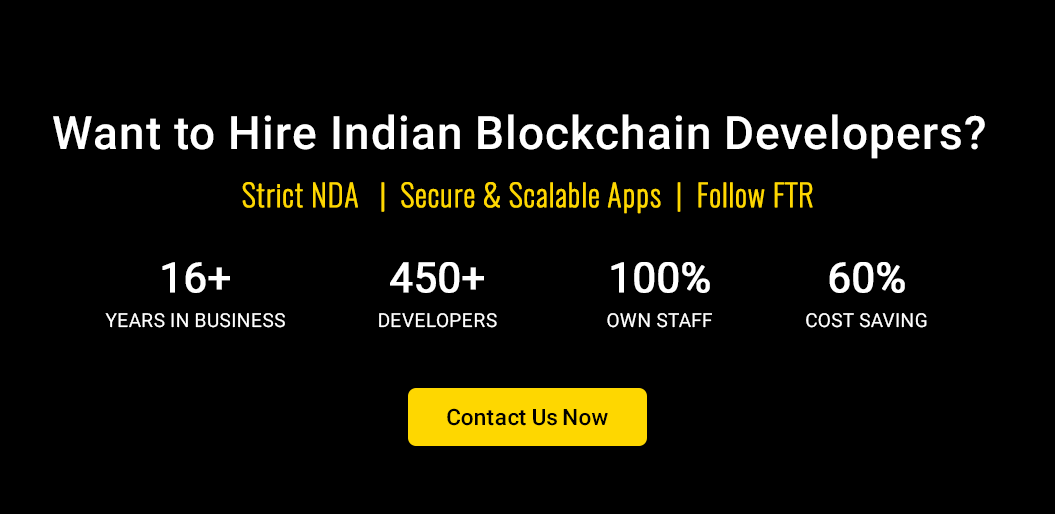The ever-changing technology industry is always looking for the next big thing. The internet, social media, and now Blockchain are all examples of how technology has changed our lives in the past few decades. Blockchain is a comparatively new type of database system that allows people to make transactions without relying on a third party like banks.
The concept of Blockchain has been around for almost 30 years. It was originally introduced to the world in 1991 by Stuart Haber and W Scott Stornetta as a means to timestamp digital records so that they couldn’t be backdated or changed after the fact.
In October 2008, Satoshi Nakamoto introduced Bitcoin; during that time, the term Blockchain was introduced. Bitcoin is a cryptocurrency which means it’s money that only exists digitally. Blockchain technology was used to record all of the transactions made with Bitcoin so that people knew their coins weren’t being spent twice.
Additionally, the most recent development in Blockchain technology came about three years ago when Vitalik Buterin introduced the world to Ethereum. It is a decentralized platform that operates smart contracts: apps that run the same as programmed without any downtime chances, fraud, censorship, or third-party interference. These apps run on a custom-built Blockchain which means they’re completely decentralized like Bitcoin. As a top Blockchain software development company, ValueCoders Blockchain application development team is well known for developing leading and impactful dApps.
Blockchain Overview

Blockchain is a DLT (distributed ledger technology) that enables the decentralized verification of transactions without any third-party involvement. This means it can be used to record not just financial transactions but virtually everything of value.
In a Blockchain system, network members add transaction records to a growing list of records (blocks) but do not go about adding these records in any specific order. This is in contrast with a traditional ledger where transactions are recorded sequentially and timestamped. Blockchain technology protects against data tampering by allowing multiple computers at different locations to view and verify transactions simultaneously. Moreover, this also prevents outside parties from altering original entries on a Blockchain ledger without permission.
Components of Blockchain
Blockchain is composed of four main components:
- Blocks (data packages) are groups or sets of transactions in DLT, and each block is linked to a previous block. The ledger must verify each new transaction before it can go through.
- Chains (the links between blocks), each block contains a cryptographic hash that connects it to the previous one, making up an immutable chain. This ensures all data has not been tampered with and no data can be removed.
- Decentralized network (peer-to-peer), which is where all transactions are broadcasted and recorded on the Blockchain. These records cannot be altered or deleted by any single entity as they would require altering all blocks after it, which requires a consensus of at least 51% of nodes in the Blockchain to achieve.
- Consensus mechanism ensures that all blocks are exact copies of each other, making them traceable and fully auditable. This is achieved by consensus algorithms such as Proof-of-Work (POW) or Byzantine Fault Tolerance protocols.
Properties Of Distributed Ledger Technology (DLT)
DLT refers especially to the technological infrastructure and protocols that permit the simultaneous access, validation, and updating of documents that portray distributed ledgers. Moreover, DLT works on a computer network spread over multiple entities or locations.
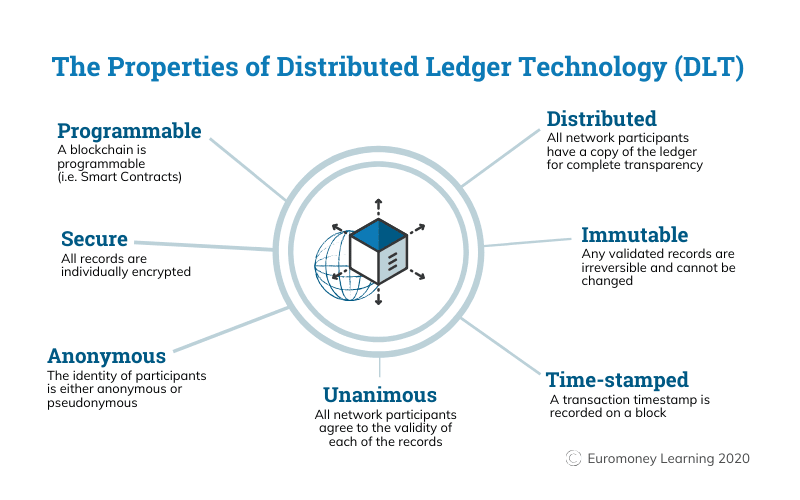
Image Source: Euromoney
The properties of Distributed Ledger Technology (DLT):
- Decentralized: Records are not stored in any central server; no one single entity has control over the ledger.
- Shared Ledger: The ledger is distributed among all participants of a network who use their computing power to verify transactions and maintain the integrity of data.
- Immutable: Once recorded on a block, data can’t be altered without changing all subsequent blocks and securing majority consensus from the other participants on the network.
- Cryptography: Data is secured using cryptography, making it very difficult to alter information once recorded in a block.
- Distributed Network: Computers that maintain an accurate copy of the ledger are geographically dispersed around the world.
- Open Source: The code is open for anyone to see, making it transparent.
Blockchain Evergrowing Numbers: Market | Use Cases | Market Players | Recent Development
Blockchain usage in various business verticals such as startups, SMEs, and large enterprises is constantly increasing, so if you are also finding the best alternative to avail of Blockchain development services, then get connected with ValueCoders Blockchain programmers.
Blockchain Market
Worldwide Blockchain market size is anticipated to rise from $3.0 billion in 2020 to $39.7 billion by 2025, at an extraordinary Compound Annual Growth Rate (CAGR) of 67.3% during 2020–2025.
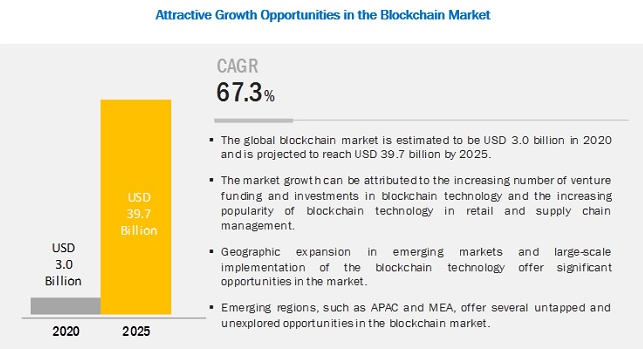
Image Source: marketsandmarkets
Use Cases In Organizations
As of 2021, 45% of respondents affirmed that their organizations were working on secure data exchange as a use case based on Blockchain, making it one of the most famous use cases of the technology. Digital currency like Bitcoin & Ethereum, asset tracking, and management, and more are also popular Blockchain use cases.
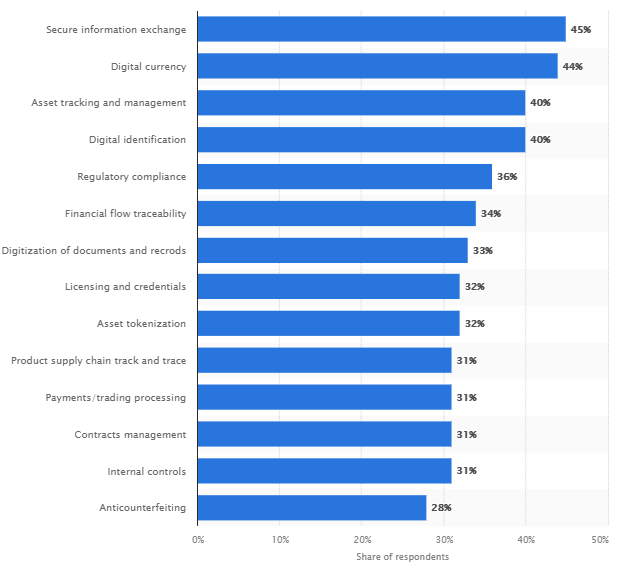
Image Source: Statista
Key Market Players
Major corporations using Blockchain technology are IBM (US), Microsoft (US), AWS (US), Infosys (India), SAP (Germany), Oracle (US), Bitfury (Netherlands), Intel (US), Earthport (UK), Digital Asset Holdings (US), Chain (US), Guardtime (US), Huawei (China), BlockCypher (US), Symbiont (US), BigchainDB (Germany), NTT Data (Japan), Applied Blockchain (UK), Auxesis Group (India) RecordsKeeper (Gibraltar), BlockPoint (US), BTL Group (Canada), Blockchain Foundry (UK), AlphaPoint (US), Factom (US), SpinSys (US), ConsenSys (US), and more.
Recent Developments
- In Feb 2020, Microsoft incorporated Lition Blockchain into Azure so that Azure’s global enterprise consumers can create, test, and deploy Lition side chains and apps with ease on its platform.
- In January 2020, Digital Asset Holdings (DAH) and IBM updated the Hyperledger Fabric. Developers can widely write smart contracts adopting various programming languages, including Java, Go, Javascript, that support Ethereum’s Solidity smart contracts language.
- In October 2019, IBM propelled a new Sterling Supply Chain Suite that empowers manufacturers, distributors, and retailers to unite their own networks and data along with suppliers into a Hyperledger-based Blockchain to trace various products.
- In May 2019, leveraging SAP’s Blockchain, Coke One North America (CONA) boosted the transparency and performance level of the gargantuan supply chain.
Worldwide Blockchain Spenders By Country
The USA and Western regions are the top two regions spending on Blockchain solutions from 2016 to 2022.
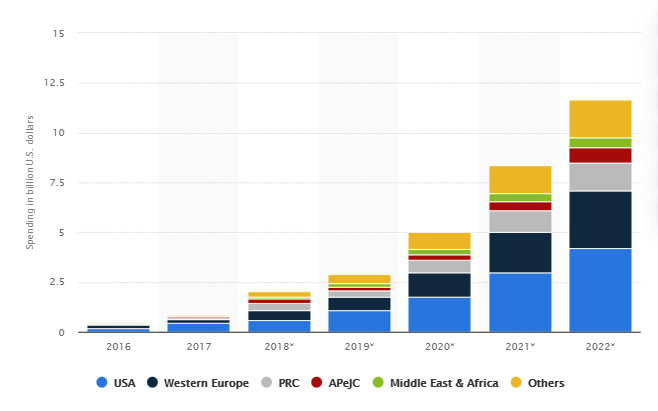
Image Source: Statista
Blockchain: Architecture, Working, Business Benefits, Industries & Future
Blockchain Architecture
The Blockchain technology Architecture basically includes three categories that are:
- Public Blockchain: Everyone can download a copy of the Blockchain and participate in writing new transactions to it. Bitcoin is one of the great examples of a Public Blockchain.
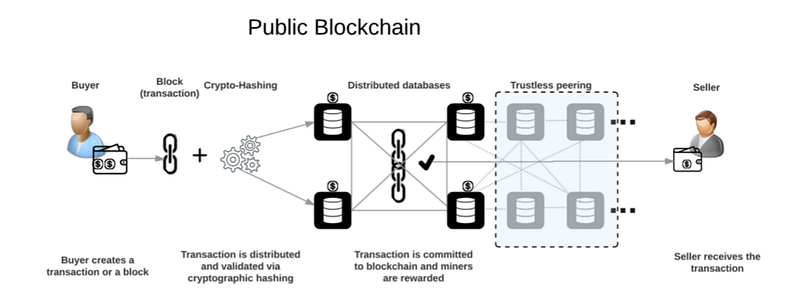
- Private Blockchain: This network needs an invitation, and participants have been vetted by one or more issuing members before being allowed to join the block-writing process.
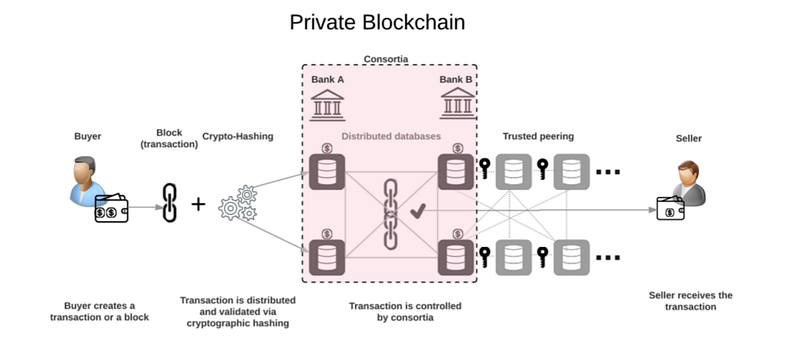
- Consortium/Federated Blockchain: This type of Blockchain is often used in the group setting where control or influence over management, participation, and membership can be well-defined. For example, a consortium might include trusted members from each organization that has been given the approval to write new transactions on their own records as needed by those organizations.
Table Showing Detailed Comparison Between these three
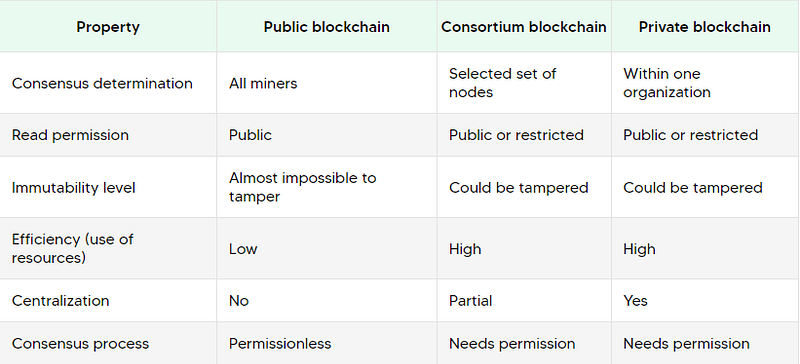
How Does Blockchain Work?
Blockchain technology works by creating a digital ledger of transactions and sharing it among a distributed network of computers. The fact that it’s spread across so many different computers means there is no single point for failure, which makes the data extremely secure.
Each block in the Blockchain includes multiple transactions, as well as metadata about those transactions such as timestamps. The blocks are connected in chronological order through cryptography, which forms a chain of data to ensure the validity and reliability of transactions across the network.
View the below-mentioned image to know each step initiated when Blockchain technology work.
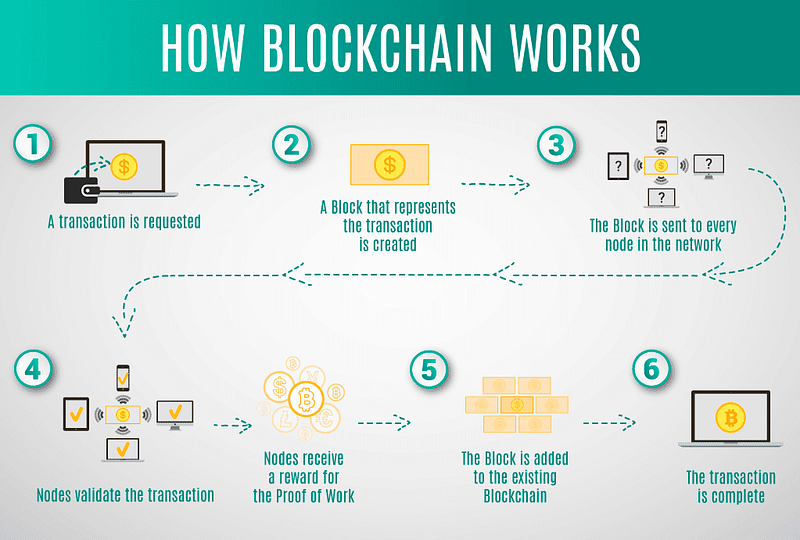
Image Source: zignuts
The Business Benefits Of Using Blockchain Technology
Blockchain offers a number of benefits to businesses (startups, SMEs and Big Brands) and industries. Some general benefits include:
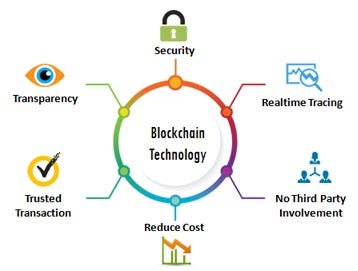
Image Source: excelglobalsolution
- Cost-saving: Blockchain technology has the potential to decrease infrastructure prices for businesses by eliminating the need for third-party intermediaries. It also cuts out paperwork processing, which saves time and money as well.
- Accuracy: This is because Blockchain is a decentralized, transparent ledger that can store and track transactions securely. There’s no need to reconcile disparate ledgers or keep data siloed in individual business units — all the information is available on a shared platform for authorized users within each organization.
- Security: The technology uses cryptography and digital signatures to ensure the security and privacy of every transaction. In fact, security is designed into the system from its inception — data in a Blockchain cannot be remodeled once it is recorded.
- Transparency: With all transaction information being placed on a shared platform accessible by authorized users within each organization, there’s no need to reconcile disparate ledgers and keep data siloed in individual business units.
- Industry Verticals Using Blockchain
Blockchain technology has the power to help out a number of different industries, both public and private. Before talking about the industry verticals, first, have a look at the stats showing the percentage of top global Blockchain spenders (Industry).
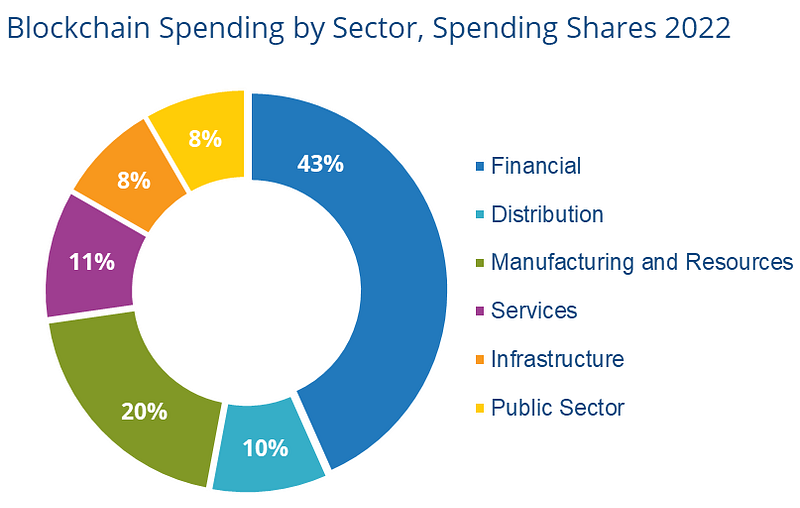
Industry verticals using Blockchain technology are:
Banking — Beyond transferring money, Blockchain can be used to improve the traditional banking system. The distributed ledger makes it easier and faster for banks to settle transactions while ensuring all parties are protected from fraud or tampering.
Healthcare — It offers transparent record-keeping for health records, so patients retain ownership over their data.
Logistics — Blockchain is used to track the shipment of goods across multiple parties, including shippers and receivers, while preventing tampering or delays.
Voting — The technology makes it possible for citizens to vote from their mobile devices while remaining anonymous, which ensures that no one person can alter an election outcome with a single ballot.
Government — Blockchain has the potential to make government functions more efficient by increasing transparency and cutting out paperwork. It can also be used to collect taxes, store land records securely, reduce fraud or transmit benefits payments.
The Future Of Blockchain Technology
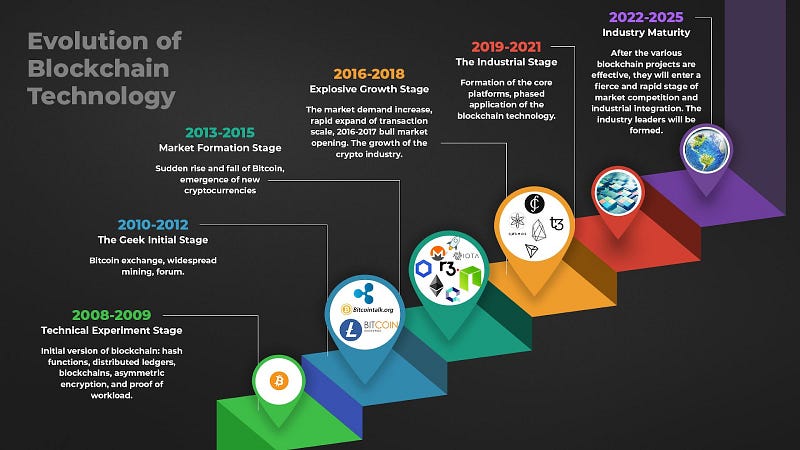
Blockchain technology has the potential to revolutionize business in numerous ways. The future of Blockchain depends on how businesses leverage its benefits and whether they choose to work with existing public Blockchains or create their own consortiums.
For example, IBM is already partnering up with major food producers like Walmart in order to track food supply chains using Blockchain. This gives consumers a level of transparency and control over what they’re eating while giving suppliers the ability to streamline their inventory management processes.
Moreover, Blockchain is still in its early stages of development and adoption, with many companies only beginning to explore the technology’s potential. In fact, a report from IDG Connect noted that 60% of organizations have just started their Blockchain journey or are at the experimentation stage. However, it added that 80% percent would be investing in Blockchain technology in the next three years.
About Us
ValueCoders is a Blockchain development company in India that knows the value of providing an enhanced digital experience to its clients. They’ve successfully maintained 97% client retention and have delivered 4200+ projects so far!
With business domain knowledge, proven methodologies, and technology expertise of 450+ skilled Blockchain programmers, ValueCoders delivers outstanding Blockchain development services around the world.





